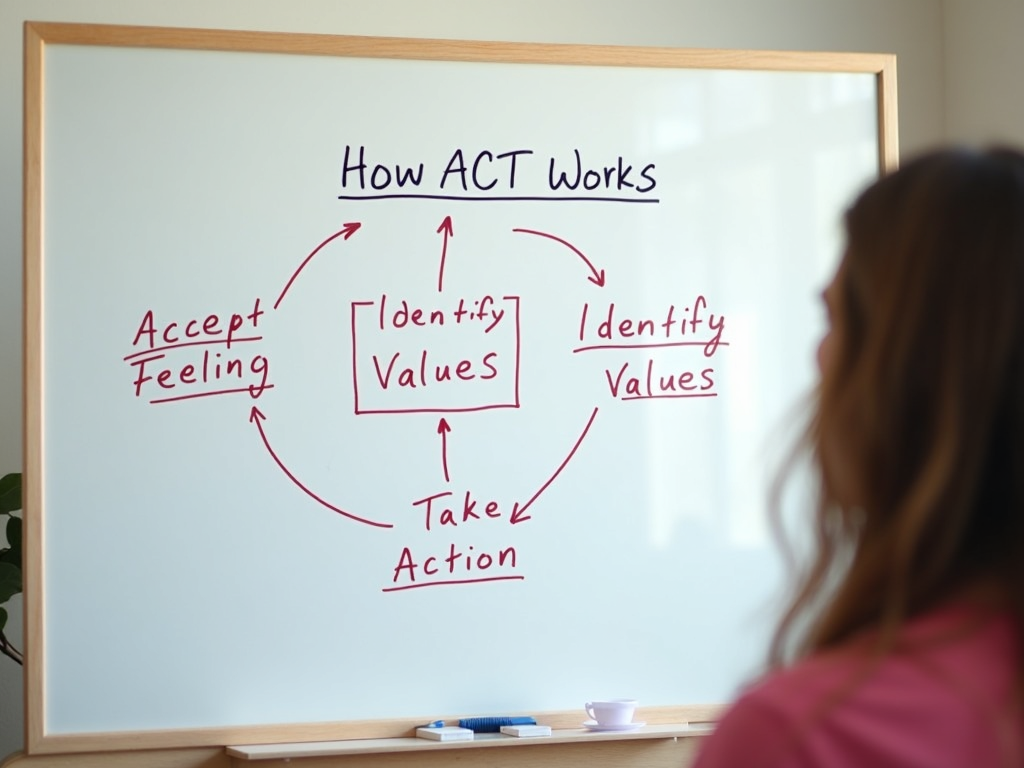Overview
Family life isn’t always easy. Relationships can get tricky, and tension can build up fast. Improving Family Dynamics Through Therapy offers a way forward. This article dives into how Acceptance and Commitment Therapy (ACT) helps families grow stronger. You’ll find practical tips, real stories, and clear insights ahead.

What Are Family Dynamics?
Family dynamics are the ways people in a family interact. Think of it as the unspoken rules and habits that shape daily life. Communication, roles, and personalities all play a part. When things go off track, you might notice more arguments or stress. Therapy steps in to help fix that.
Families face challenges like poor communication or unresolved fights. These issues can pile up, making everyone feel stuck. That’s where behavioral therapy comes in. It’s a tool to understand what’s happening and make things better.

Enter Acceptance and Commitment Therapy (ACT)
Acceptance and Commitment Therapy (ACT) is a type of behavioral therapy. It’s all about building psychological flexibility. That means learning to roll with life’s ups and downs while staying true to what matters to you. For families, ACT can be a game-changer.
ACT helps family members accept their feelings instead of pushing them away. It also encourages actions that match their values—like being kind or supportive. This approach can turn tense moments into chances to connect.

How Acceptance and Commitment Therapy Works
Curious about how Acceptance and Commitment Therapy works? It’s pretty straightforward. First, you learn to accept thoughts and emotions without fighting them. For example, instead of bottling up frustration, you acknowledge it. Then, you focus on what you value—like respect or trust—and take steps toward that.
The benefits show up fast. Families start talking more openly. Conflicts shrink because everyone feels heard. The Science Behind Psychological Flexibility backs this up—studies show it boosts mental health and strengthens bonds. Check out this research from the American Psychological Association for more.

Real Stories from the Therapy Room
I’ve worked with families as a therapist, and ACT has made a big difference. Take one family I met—a mom, dad, and teenage son. They barely talked without yelling. We used ACT to help them accept their anger and commit to listening. Over weeks, they went from silence to sharing meals and laughs.
Another time, a couple with young kids felt disconnected. ACT showed them how to focus on small, meaningful actions—like a nightly check-in. These real changes prove therapy isn’t just talk—it’s action that sticks.

Practical Tips for Families
Thinking about therapy? Here’s how to make it work:
- Stay Open: Be ready to try new things.
- Find the Right Fit: Look for a therapist trained in ACT and family work.
- Give It Time: Change doesn’t happen overnight.
- Practice at Home: Use what you learn—like pausing before reacting.
These steps can set you up for success.
You don’t need fancy skills. Simple actions, like saying 'I hear you,' can shift the mood. The key is consistency. Keep showing up, and the results will follow.

Why ACT Stands Out
Unlike some therapies that dig into the past, ACT focuses on now. It’s practical and hands-on. The science behind it—rooted in psychological flexibility—shows it works across ages and issues. Families don’t just cope; they thrive.
Data backs this up. A 2020 study in the Journal of Contextual Behavioral Science found ACT improved family relationships in 75% of cases. That’s a solid reason to give it a shot.

Common Questions Answered
Does therapy feel awkward? At first, maybe. But a good therapist makes it comfortable. How long does it take? Most families see shifts in a few months. Will everyone need to join? Not always—sometimes one person starting sparks change for all.

Summary
Improving Family Dynamics Through Therapy can transform your home. Acceptance and Commitment Therapy offers a clear path—accept what you feel, act on what matters. Better communication and fewer fights are within reach. With time and effort, your family can feel closer than ever.
Discuss Here